Country Singers With Funny Racist Songs
1 / 12
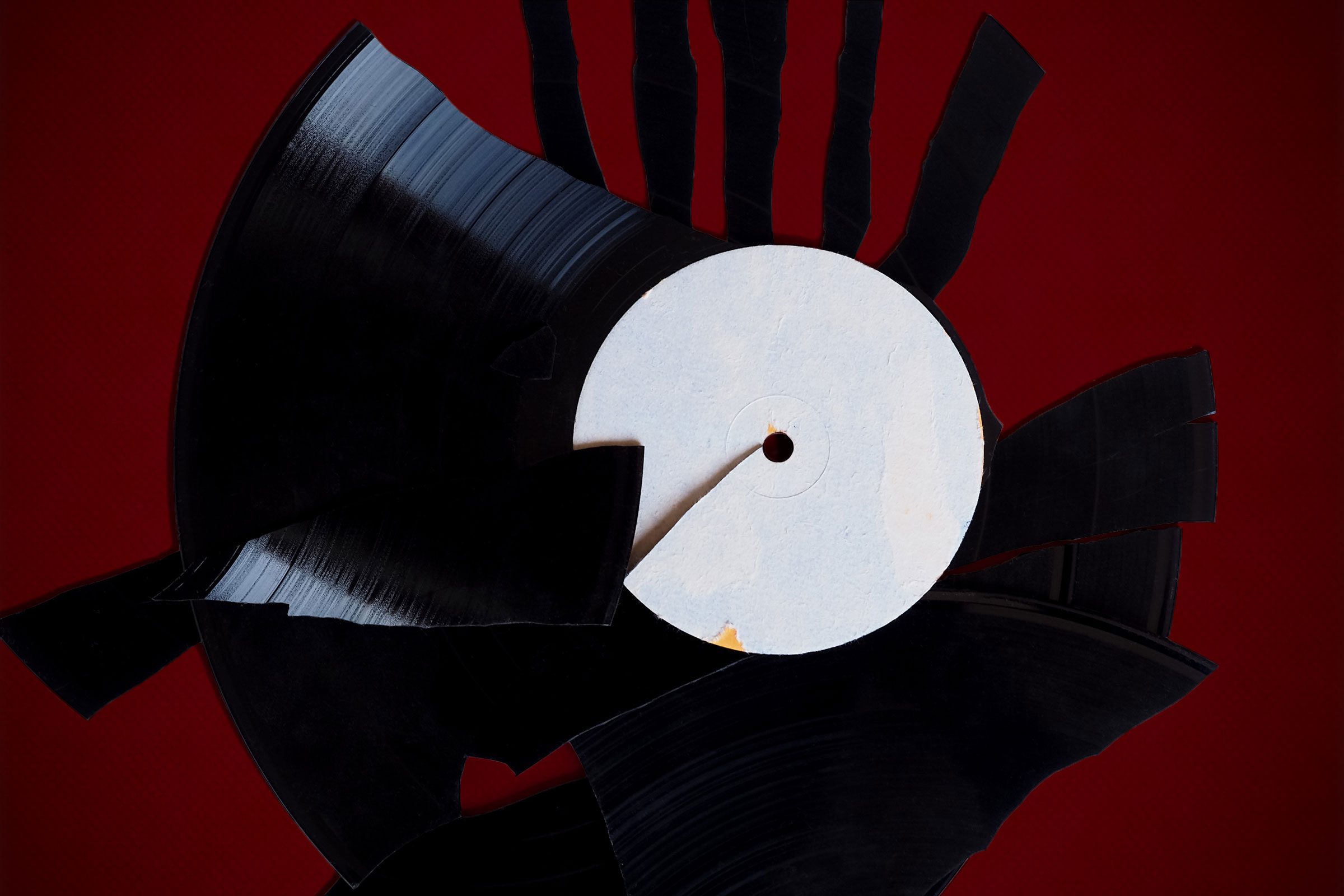
They're catchy…and offensive
Putting words to music can lead to immortality. Unfortunately, not all sentiments expressed in songs deserve to live forever. Systemic racism has been known to work itself into music, via lyrics that promote unflattering racial stereotypes and uphold the ideals of White supremacy by "other"-ing Blacks, Asians, Latinos, Muslims, Native Americans, and various other historically marginalized groups. In evaluating a tune's capacity to offend, it's important to differentiate between neutral cultural reference (The Bangles' 1980s hit "Walk Like an Egyptian," a nod to the stately poses in Egyptian mythological art, not living, breathing Egyptians) and cultural devaluation wrought by racism. There's plenty of the latter going around, and it might be playing on a radio near you right now. Here are some popular offenders you may not have realized were problematic. Once you're up to speed, find out which everyday expressions are racist as well.
2 / 12
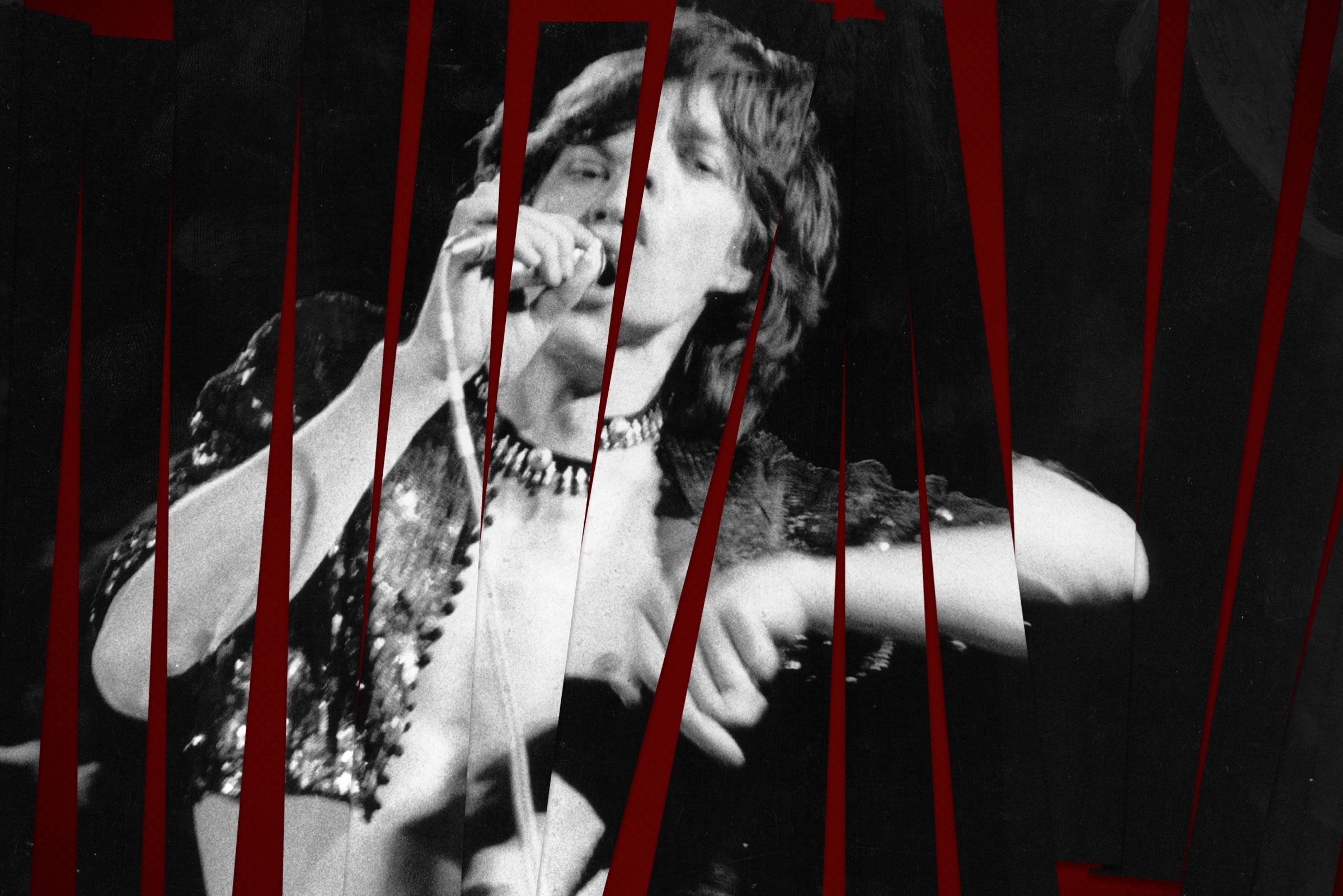
"Brown Sugar" by The Rolling Stones
Some things don't deserve to be sung about, like slavery—especially when the song uses whipping imagery as it attempts to demonstrate the sexual prowess of Black women. But yet that's precisely what Mick Jagger did in The Rolling Stones' 1971 smash "Brown Sugar." The title was offensive enough, but in the first verse, Jagger travels back to the plantation to peek in on the slave owners who used to make it hurt so good as he sings, "Hear him whip the women just around midnight."
"It sounds like something out of a dystopian horror film or a tale of 19th-century-era evil," music producer Ian Brennan wrote in the Chicago Tribune in 2019. "For anyone remaining an apologist for 'the greatest rock 'n' roll band in the world,' I challenge you to speak the lyrics to 'Brown Sugar' in its entirety aloud and irony-free before a diverse group of strangers. Go ahead, I dare you." If you're wondering how this ever seemed OK, you should definitely read these 15 essential books for understanding race relations.
3 / 12
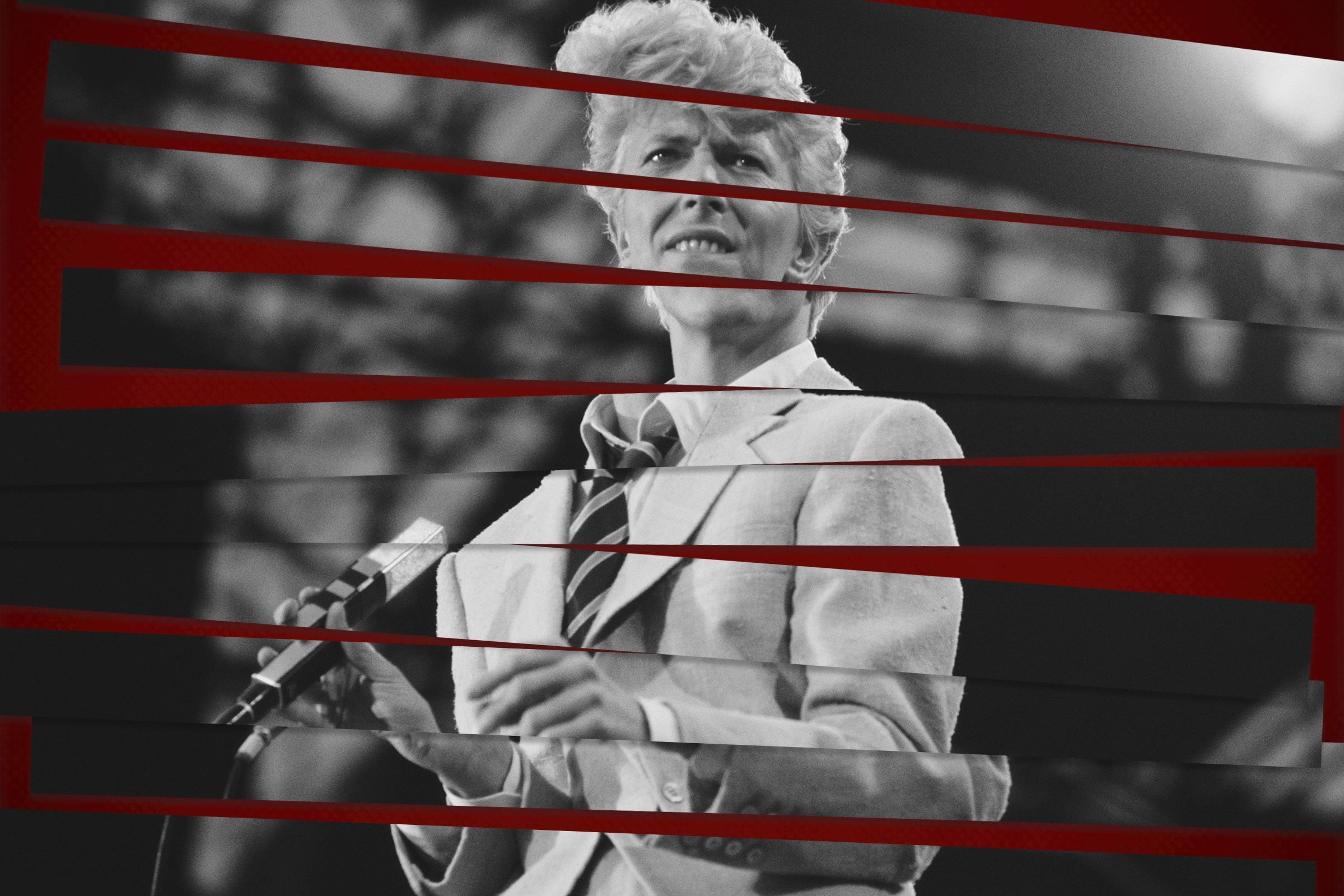
"China Girl" by David Bowie
This is no ordinary love song, but then, few would expect normal from a hit written by David Bowie and Iggy Pop. The video for the 1983 single, which featured Bowie and the object of his affection nude on a beach at the end, was censored for television viewing. But the most objectionable aspect of the song about an interracial romance is its casual reference to White privilege and colonialism in the line about stumbling "into town just like a sacred cow, visions of swastikas in my head, plans for everyone," as well as the one that goes, "I'll give you television/ I'll give you eyes of blue/ I'll give you a man who wants to rule the world."
This doesn't necessarily mean that Bowie, who was married to Somalian supermodel Iman for nearly a quarter-century, was racist. However, even if "China Girl," as Iggy Pop has suggested, was a metaphor for heroin, they probably should have gone with lyrics untainted by colonial imagery. Casual racism is also a problem—take, for instance, these 20 everyday acts of racism that don't get talked about enough.
4 / 12
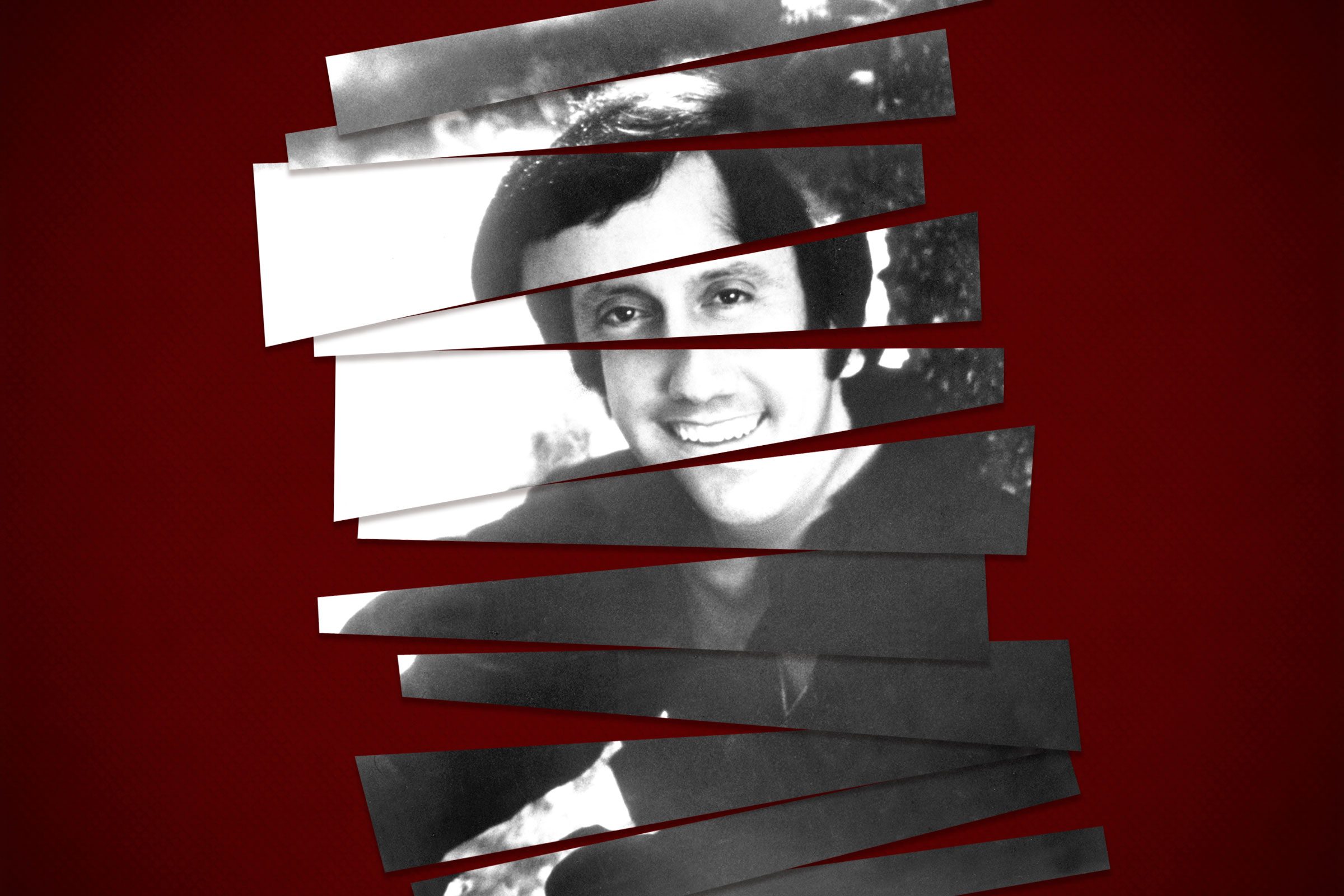
"Ahab the Arab" by Ray Stevens
This 1962 Top 10 hit by the man who would achieve a global number one 12 years later with "The Streak" is a novelty song packed with stereotypes about Arab people. Stevens even pronounces "Arab" so that it rhymes with "Ahab," giving it a distinctly redneck air. "The pronunciation of Arab as 'A-rab' is derogatory," Faris Bouhafa, spokesperson for the American-Arab Anti-Discrimination Committee, told the Washington Post in 1987. "Arabs respond to that pronunciation the same way Blacks respond to the [N-word]."
In the song, a "sheik of the burning sand" who "wore a big ol' turban wrapped around his head" and would "jump on his camel named Clyde" for secret rendezvous with "Fatima of the Seven Veils, swingingest grade A number one U.S. choice dancer in the Sultan's whole harem, 'cause, heh, him and her had a thing going." The story gets sillier, and it might have been funny if most of its humor wasn't aimed at Arab culture, which, frankly, hasn't received overwhelming respect in the West, to say the least. Here's the psychology of how we learn prejudice.
5 / 12
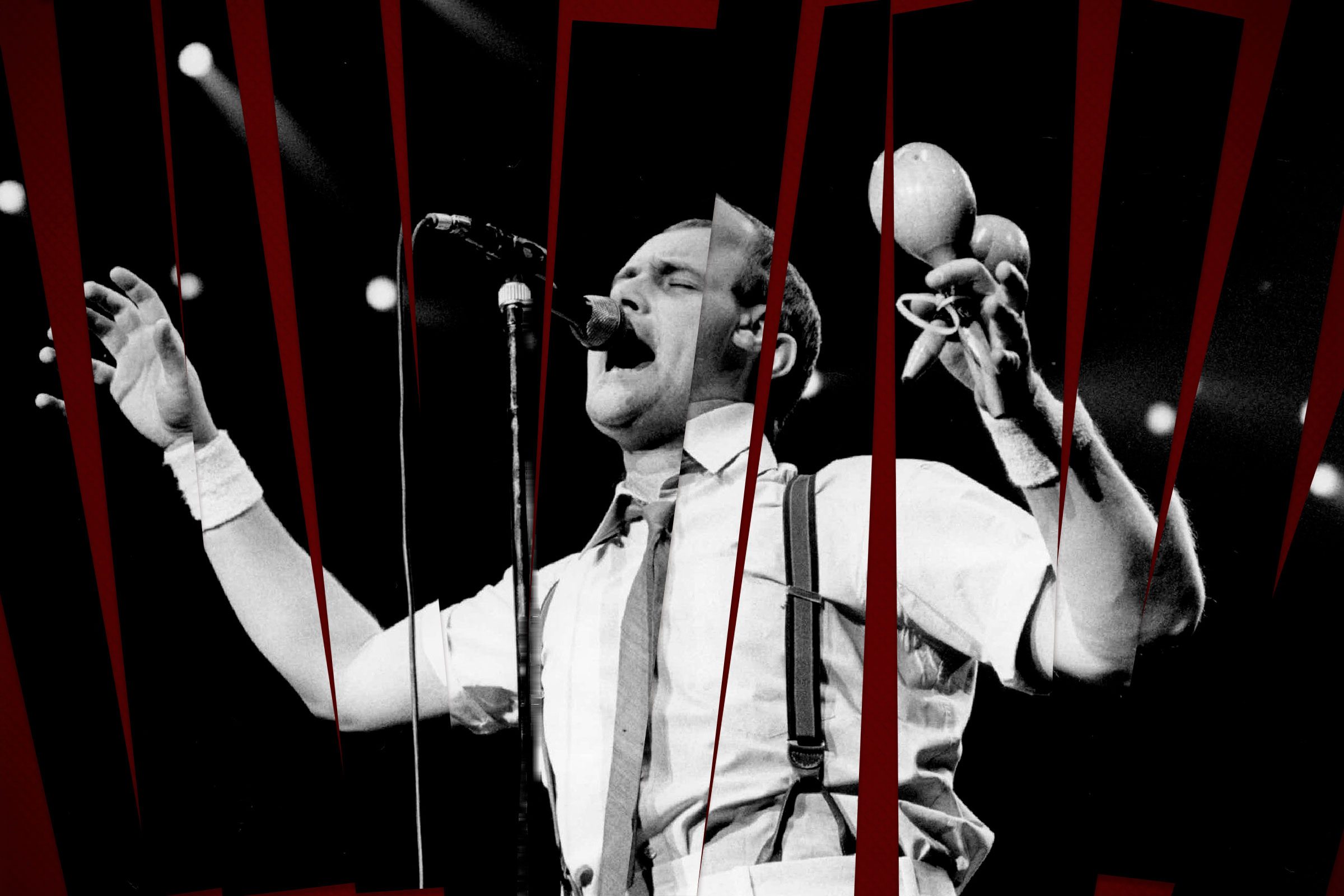
"Illegal Alien" by Genesis
This 1984 single was supposed to be comical, but the fact that it exists at all proves that undervaluing Mexicans has been an American theme for decades. "The song and video touch on pretty much every Mexican stereotype, like a check list, in the space of four and a half minutes: drunkenness, panchos, laziness, Mariachi horns, bushy mustaches, sneakiness, sombreros, nonsensical Spanish gibberish. Also, it's sung by Phil Collins in a Mexican accent. Ay caramba!" Steven Hyden wrote for the A.V. Club in 2008. No wonder, as Hyden suggested, classic-rock radio will hardly touch the modest chart hit in these more politically aware times. If you have children, it's a good idea to address these issues. Here's how one woman is talking to her daughter about racism.
6 / 12
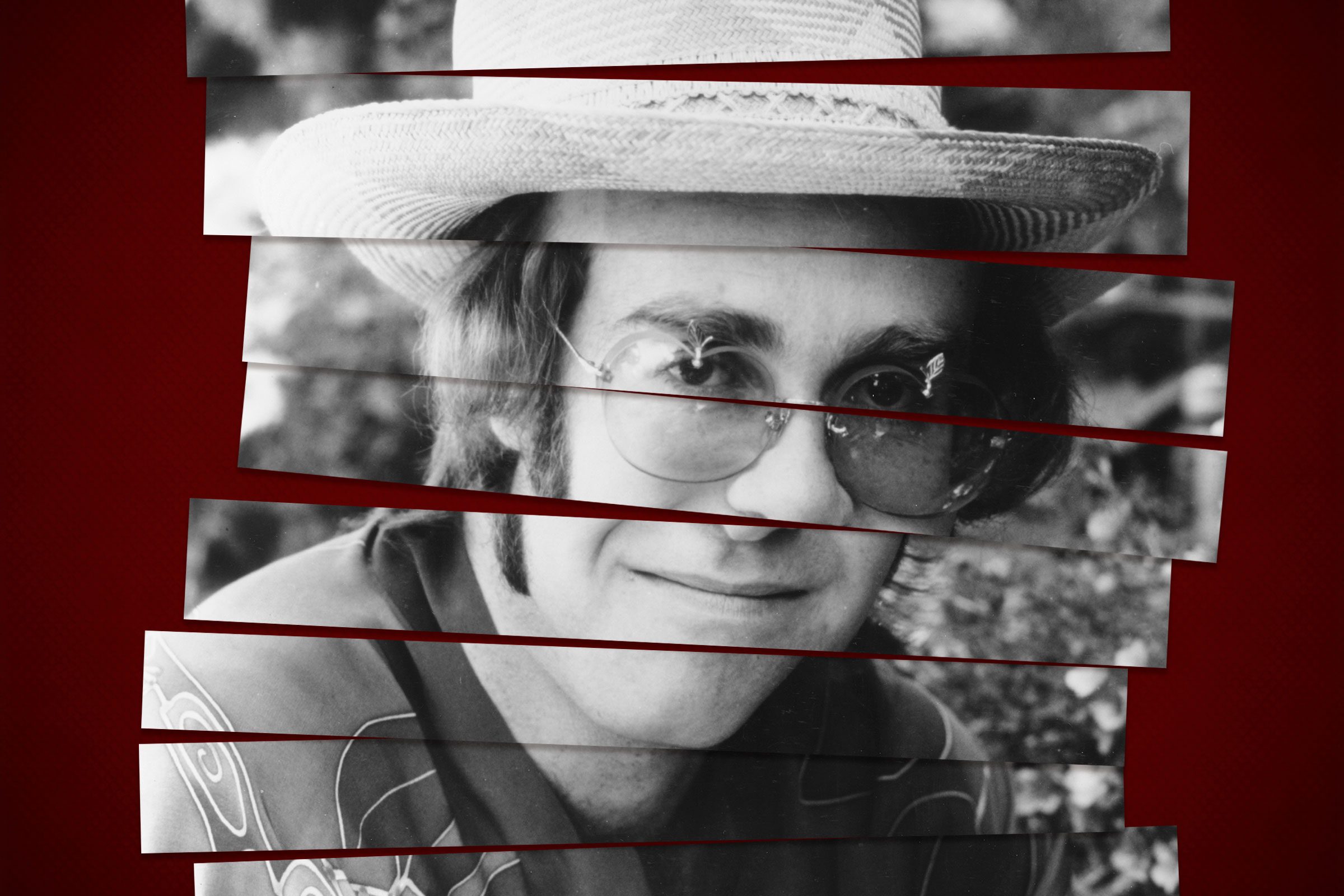
"Island Girl" by Elton John
Warning: If you're White and you want to write and sing a song about a Jamaican man who falls for a Jamaican transvestite and wants to rescue her from New York City, don't refer to NYC as a "White man's world." And whatever you do, don't sing it using terrible grammar ("Black boy want you in his island world") to convey that the story is about two people who aren't White.
"The faked-up Caribbean inflections, both oral and instrumental…imply a naive racism belied by the impassive but sage cruelty of the lyric's conclusion—that is, the 'inappropriateness' of the music ultimately elaborates the song's irony," rock critic Robert Christgau once noted. Michael E. Cormier was less diplomatic on the Am I Right website: "This song reeks of racism. Kinda makes you wonder if Elton's lyricist, Bernie Taupin, had any unresolved race issues when he wrote the words to this song." By the way, this is why you should stop saying "I don't see color."
7 / 12
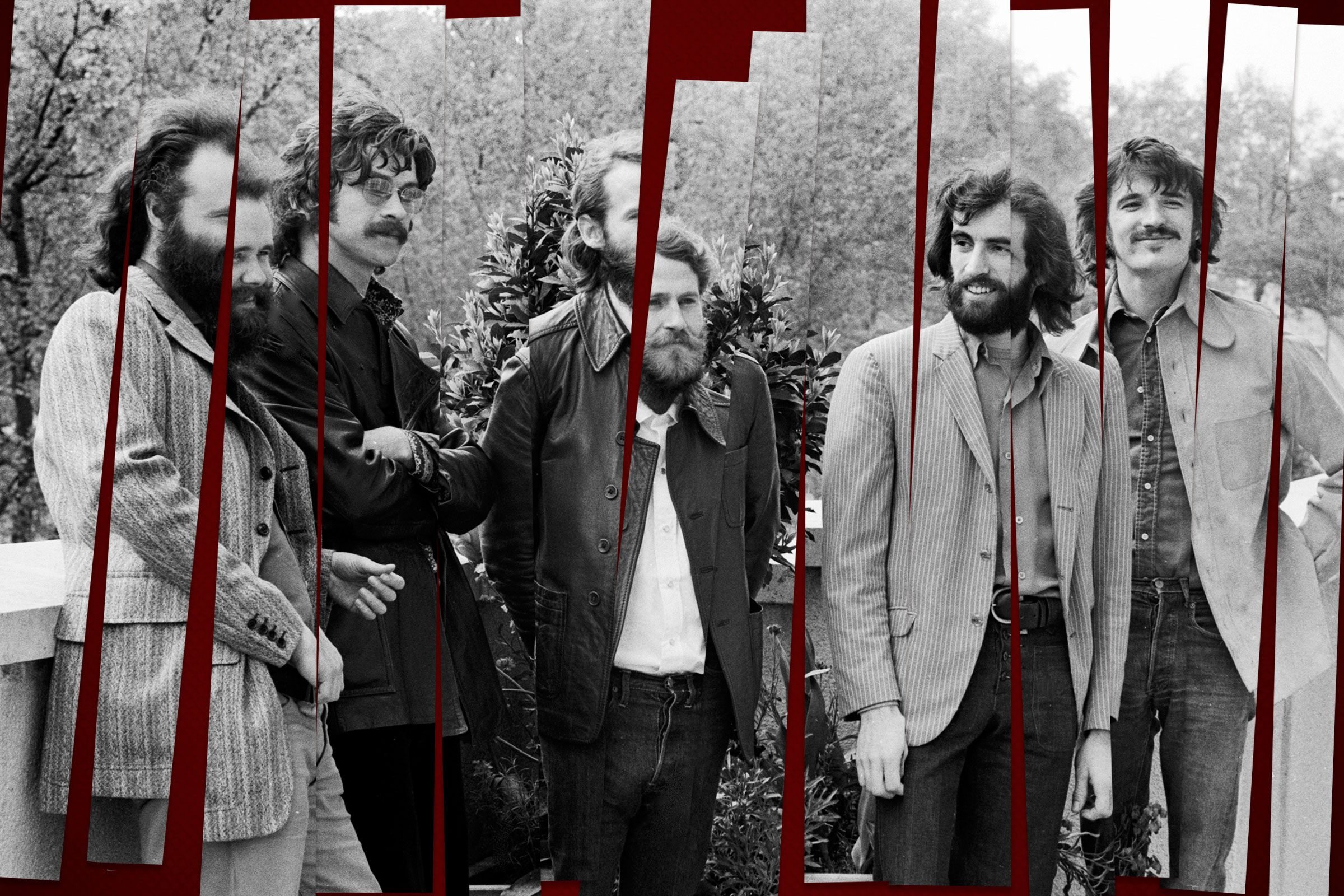
"The Night They Drove Old Dixie Down" by The Band
This 1969 classic has a pretty progressive pedigree. It was written by Robbie Robertson, a Canadian, and originally released by his group The Band on their self-titled second album. In 1971, folk legend Joan Baez recorded a cover version that went to number three on Billboard's Hot 100. Despite the song's progressive associations, it's dripping with Confederate sympathy. A Southerner's first-person narrative, it romanticizes the pro-slavery South in much the same way that the Daughters of the Confederacy and the song "Dixie" do, spinning the Civil War's "rebels" as Yankee victims. In the throes of defeat, the narrator, Virgil Caine, whose "proud and brave" 18-year-old brother "took a rebel stand" and lost his life, says, "But they never should have taken the very best." It's Southern pride drenched in nostalgic pathos.
"People [in the South] take that song as their anthem," Alabama singer-songwriter Early James recently told Rolling Stone. "When people had songs as their ringtone, I remember that being one," he continued, adding, "They had no idea Robbie Robertson was Canadian. If they had, they would've hated it! People are just ignorant." Ready for some Civil War history you probably never learned in school? Find out about the history of Juneteenth and why we celebrate it.
8 / 12
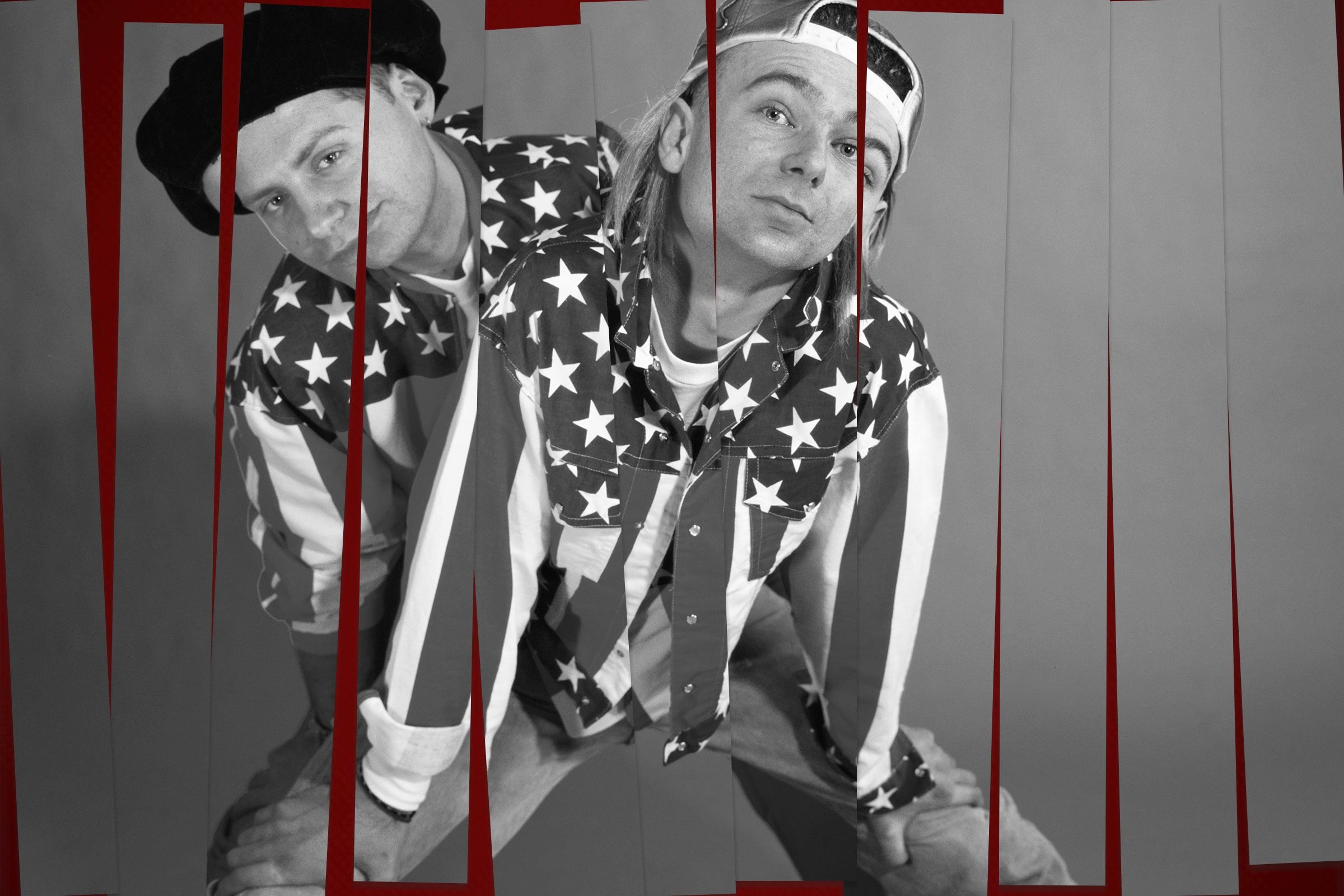
"Right Here, Right Now" by Jesus Jones
The 1991 hit celebrating the fall of communism dismissed the ongoing Black struggle at the time: "A woman on the radio talked about revolution when it's already passed her by" and "I saw the decade in, when it seemed the world could change at the blink of an eye/ And if anything then there's your sign of the times." The former line was a dig at Tracy Chapman, who had released "Talkin' Bout a Revolution" three years earlier, while the second one referred to a Prince hit from 1987. "I wanted to write a sort of updated but positive 'Sign o' the Times' to reflect what was happening," Jesus Jones singer and songwriter Mike Edwards told the Guardian in 2018. Fine. But did he really have to brush off powerful musical statements about racial disenfranchisement by two Black artists in order to make his point? This pretty much sums up why Black History Month shouldn't be a single month.
9 / 12
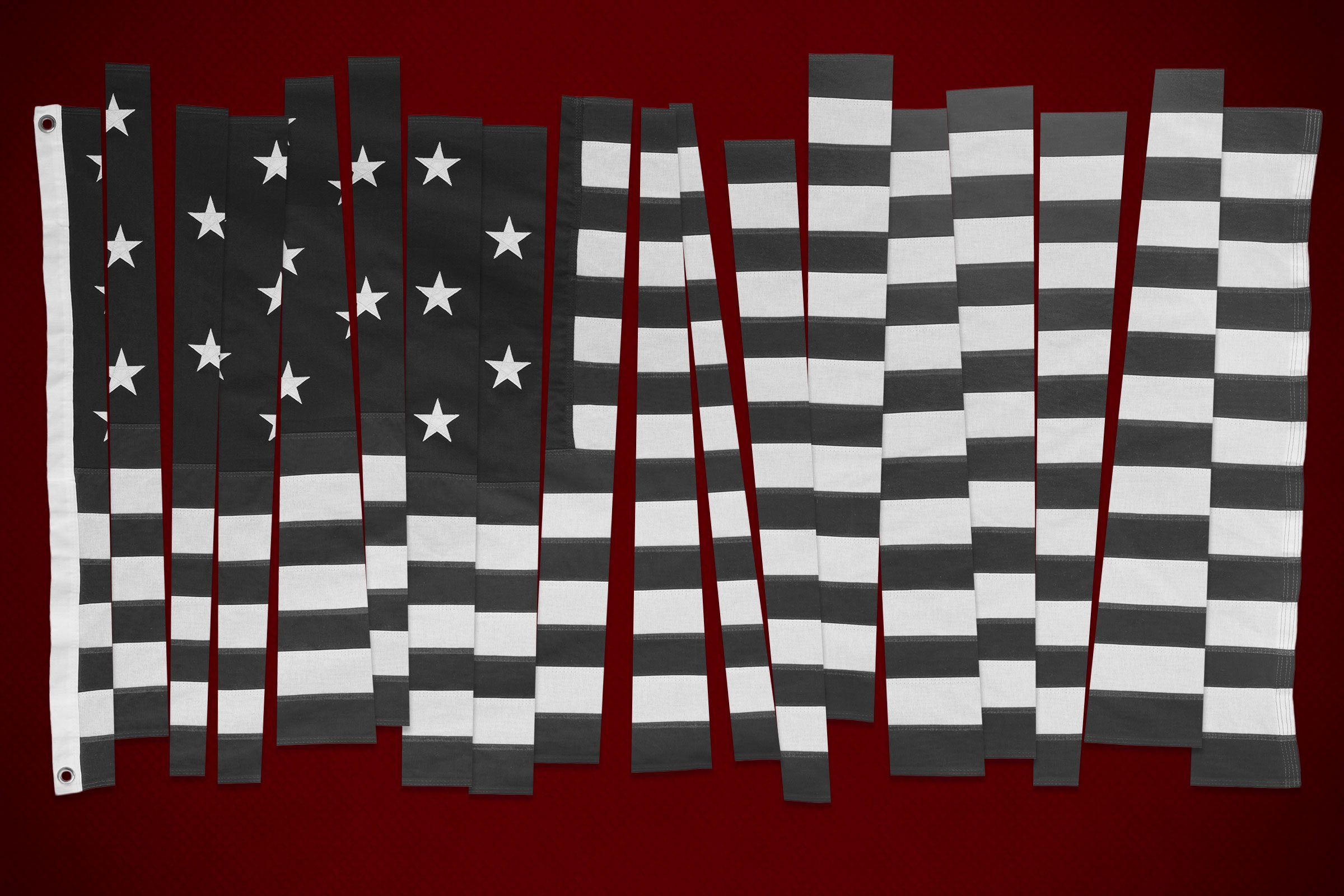
"The Star-Spangled Banner"
America's national anthem is actually longer than the version we hear at sporting events like the Super Bowl. Written in 1814 by Francis Scott Key, a slave owner, as the poem "Defence of Fort M'Henry," it included the following line: "No refuge could save the hireling and slave from the terror of flight or the gloom of the grave." Yes, the song that was written to acknowledge the power of the U.S. military during the War of 1812 also reinforced the power of White people over Black people in the days of slavery. Imagine Lady Gaga or Demi Lovato singing that part at the Super Bowl.
"There's also the phrase 'the land of the free,'" Jameelah Nasheed wrote in Teen Vogue. "Key wrote the poem that would eventually become the national anthem in 1814, during a time when Black Americans were not free; slavery ended in 1865, making it even clearer that this anthem was written to celebrate the land of the free—White Americans." This is one of the reasons why some Black Americans don't celebrate the Fourth of July.
10 / 12
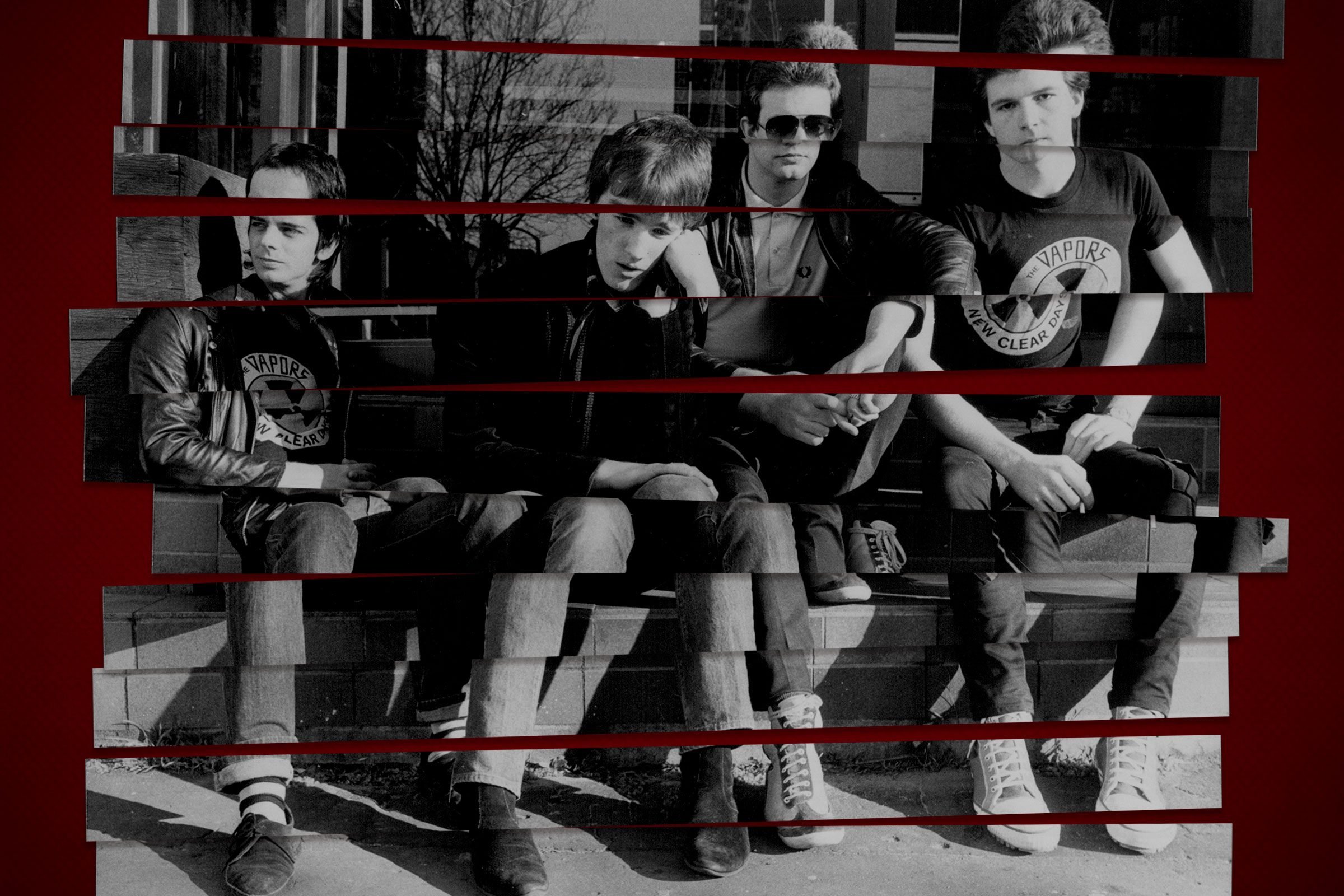
"Turning Japanese" by The Vapors
The title of this 1980 single begs a certain question: If one isn't born Japanese, how exactly does one turn Japanese? "Sadly, the 'turning Japanese' refrain didn't refer to singer David Fenton studying the ancient Kanji writing system, adopting Buddhism, or indeed mastering a revered martial art," Alex Hoban wrote in the Guardian in 2008. Instead, it apparently refers to a very private bedroom moment during which a man might "tighten [his] eyes and 'turn Japanese.'" Basically, the White British band's only U.S. hit is about a White guy using wordplay that reflects what he sees as the physical appearance of people who aren't White and, as Hoban puts it, pairs racism with "a funky rock beat." Don't miss these 14 small ways you can fight racism every day.
11 / 12
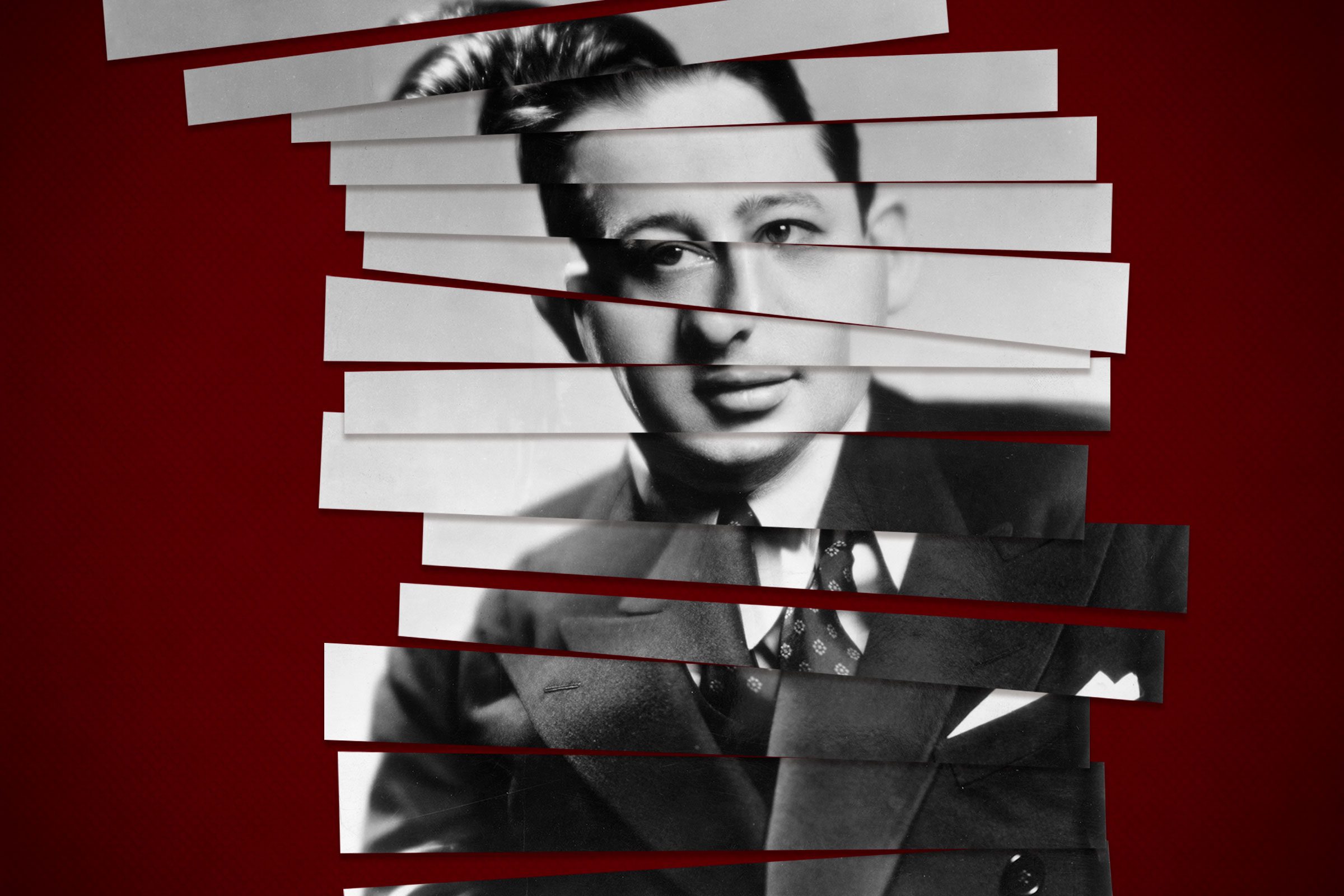
"Without a Song"
It's a pop standard that has been recorded by artists both Black and White, including Frank Sinatra, Stevie Wonder, The Supremes, and Willie Nelson, so what's the problem? Well, for starters, the line "A darkie's born/ But he's no good no how/ Without a song," which were the original lyrics written by Billy Rose and Edward Eliscu and sung by Nelson Eddy, Lawrence Tibbett, and others. That a song with such racist origins has been accepted as an integral part of our musical vernacular and the Great American Songbook illustrates how racism is built into not only American structures but its entertainment as well. Furthermore, it presciently describes a culture in which Black people are valued mostly for their entertainment value, as if excelling in science and academia are beyond their reach.
To his credit, after recording it with its original lyrics, Sinatra changed "darkie" to "man," which is thankfully the version of the song we are most familiar with via countless cover versions today. If you're a Sinatra fan, check out these rare vintage photos of Ol' Blue Eyes.
12 / 12
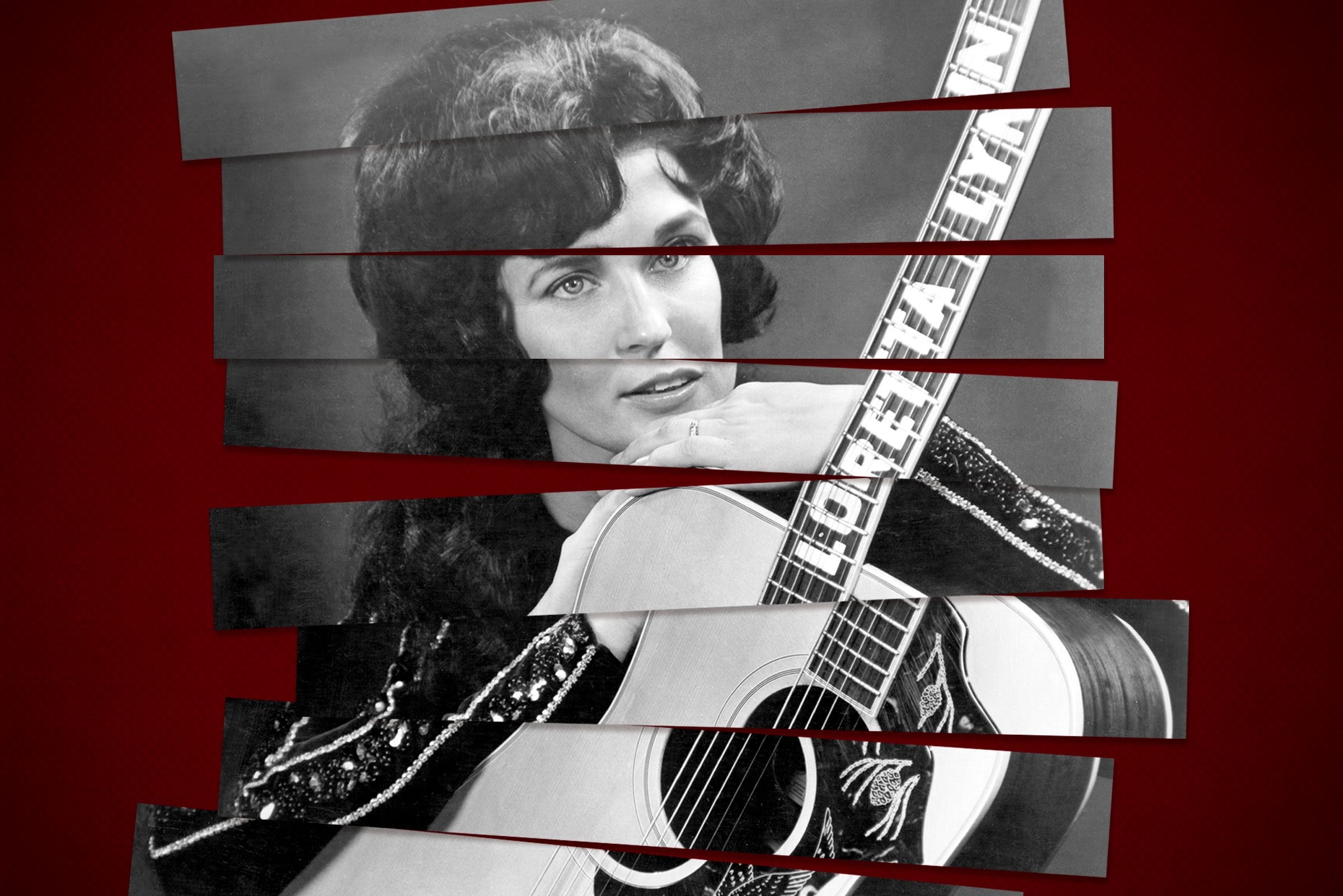
"Your Squaw Is on the Warpath" by Loretta Lynn
The world was a different place when this song was released in 1969, but considering the history of Native American subjugation at the hands of White Americans, Loretta Lynn should have considered a different extended metaphor to describe her domestic revolution. It's bad enough that she dressed up as a Native American woman on the cover of the single, but her cutesy references to teepees, papooses, and a war dance trivialize a culture that has long been appropriated but rarely duly respected in the United States.
Later hits by Cher ("Half-Breed") and Tim McGraw ("Indian Outlaw") further plundered Native American culture for White profit. "They are caricatures, symbols of the European-American narrative that ignores the genocide, disease, and cultural devastation brought to our communities," Indian Coun try Today editor Mark Trahant wrote of the co-opting of Native American imagery in a 2018 National Geographic article.
For more on this important issue, see our guide to the Fight Against Racism.
Originally Published: August 26, 2020
Source: https://www.rd.com/list/popular-songs-you-didnt-realize-are-racist/
0 Response to "Country Singers With Funny Racist Songs"
Post a Comment